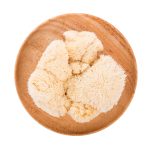GREAT NEWS for better emotional health, quality sleep and brain function
 (NaturalHealth365) As the COVID-19 pandemic drags on into its third year, it’s clear that the government-implemented draconian COVID measures have taken a toll on national mental health. According to the U.S. Centers for Disease Control and Prevention (CDC), the number of people suffering from sad and anxious thoughts and feelings rose dramatically.
(NaturalHealth365) As the COVID-19 pandemic drags on into its third year, it’s clear that the government-implemented draconian COVID measures have taken a toll on national mental health. According to the U.S. Centers for Disease Control and Prevention (CDC), the number of people suffering from sad and anxious thoughts and feelings rose dramatically.
The sleeping habits of Americans appear to have suffered, as well. In a recent study, researchers observed that “sleep has changed dramatically” during the COVID-19 pandemic, with COVID symptoms sometimes leading to psychological disturbances, including anxious thoughts. Many herbalists and integrative physicians believe that a fuzzy-looking Asian mushroom may help relieve occasional sleeplessness.
Lion’s mane mushroom – botanically known as Hericium erinaceous – may help you relax and calm emotions, support better brain function, and improve your quality of sleep. But does it work? Let’s see what early research suggests.
Naturally IMPROVE your sleep to greatly enhance your overall wellbeing
Sleep disruption is now considered a major public health issue – and researchers are sounding the alarm. In a new study published in BMC Complementary Medicine and Therapies, the scientists pointed out that this condition can increase mortality by an alarming ten-fold if the interruptions lead to less than six hours of sleep a night. The team theorized that erinacines – natural substances present in lion’s mane mushrooms – can soothe anxious thoughts and help promote restorative, uninterrupted sleep by modulating brain pathways.
Studies have previously shown that lion’s mane can improve the functioning of the hippocampus, which is involved with emotional responses. Although more research on humans is needed, one small clinical trial of women with poor sleep quality and sad and anxious feelings showed that lion’s mane extracts improved their symptoms.
Is this “brain food?” Lion’s mane mushrooms support the growth of neurons
Lion’s mane mushrooms contain organic compounds known as hericenones and erinacines – potent antioxidant and anti-inflammatory agents that can scavenge the harmful free radicals that cause oxidative stress. In addition, they help to synthesize important nerve growth proteins, such as brain-derived neurotrophic factors. Scientists say this allows lion’s mane mushrooms to slow the death of neurons and even stimulate neuronal growth, possibly helping to avoid cognitive breakdown. Furthermore, in animal studies, extracts from lion’s mane reduced signs of aging while helping to prevent the accumulation of amyloid-beta plaques.
Lion’s mane mushrooms may also help with cognitive issues, word recall, memory, and organization. An older – but still influential – Japanese study published in Phytotherapy Research showed that four months of supplementation with 3 grams a day of lion’s mane mushrooms improved cognitive function in 50 to 80 years olds. (However, the positive effects lasted only so long as patients took the supplement.)
Noting no adverse reactions, the team deemed the mushroom intervention “effective” in improving mild cognitive impairment. Finally, in a controlled trial published in Biomedical Research in 2019, 12 weeks of supplementation with lion’s mane caused significantly improved cognitive function – as measured by the Mini-Mental State Examination.
If you experience occasional, minor bouts of mental fatigue, “brain fog,” and impaired concentration (and honestly, who doesn’t?), natural health experts advise lion’s mane mushrooms to support clear, focused thinking.
Help improve your digestive system, immunity and blood circulation
But that isn’t all. Due to their ability to support nerve regeneration, lion’s mane mushrooms are being investigated for their use to help speed recovery from strokes. In addition, they promote efficient digestion, protect the stomach lining and encourage the growth of beneficial bacteria in the gut (the location of 80 percent of the immune system).
In animal studies, lion’s mane mushrooms have lowered high triglycerides, decreased inflammation, and slowed weight gain, thereby supporting healthy heart function. Finally, a mushroom extract known as hericenone B reduces the rate of blood clotting and promotes healthy circulation.
“Mellow out” with lion’s mane
While lion’s mane mushrooms can be eaten raw, most enthusiasts prefer them cooked, as the taste can be somewhat bitter. Also called yamabushitake and pom-pom mushrooms, lion’s mane mushrooms have a delicate, briny flavor reminiscent of crab or lobster. Sautee them in grass-fed butter or ghee and use them to elevate stir-fries, accent seafood dishes, and enhance soups, stews, omelets, and casseroles.
Here’s a “pro tip:” For best results, cook these mushrooms until the outer layer is crispy.
You can also find lion’s mane mushrooms as a supplement in capsules, tablets, powders, and tinctures. Naturally, check first with your integrative doctor before supplementing.
With their shaggy, yarn-like texture, lion’s mane mushrooms may appear a little off-putting – at first. But don’t let their odd appearance discourage you. These beneficial fungi can be a soothing, calming addition to your healthy diet.
Sources for this article include:
CDC.gov
NIH.gov
NIH.gov
MedicalNewsToday.com
Healthline.com
NIH.gov



